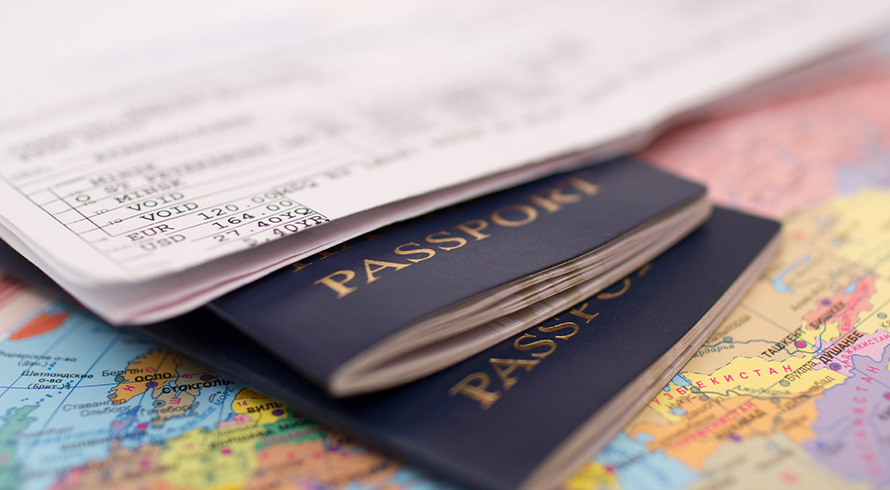One step closer to law: The Copyright Amendment Bill and Performers’ Protection Amendment Bill
At a glance
- On 29 February 2024, both houses of the National Assembly approved the Copyright Amendment Bill and the Performers' Protection Amendment Bill.
- These somewhat controversial bills are aimed at updating the Copyright Act 98 of 1978 and the Performers' Protection Act 11 of 1967 to make them more effective for educators, researchers and people with disabilities, and to protect the moral and economic rights of performers.
- Much of the detail in both bills (royalty percentages, time frames, and offices of authority) must still be published in regulations, so the economic impact of the changes is yet to be assessed, but it is expected that the interpretation of the new provisions will present many challenges
These bills have, at various stages of the legislative process, been met with criticism from diverse participants in both the local and international publishing and television sectors, but their concerns do not appear to have been addressed.
Many of the changes are in line with measures introduced internationally, such as the “artist resale right” which requires that royalties be paid to the artist, if they are a South African citizen (or domiciled or resident in South African), of a painting, sculpture, drawing, engraving or photograph on any “commercial” resale for a period of 50 years from the year the creator died. However, in the CAB we don’t see the exemptions that the UK provides for, such as where it was bought as stock or for sales between private individuals, without the use of an art market professional, or to public, non-profit making museums. Instead, the CAB uses the word “commercial” which requires that the sale be part of a business or trade for financial or economic gain – a definition which will need to be interpreted in circumstances as they arise.
Shift to US model
Despite South Africa having a Copyright Act that is based on UK legislation, and hence decades worth of case law interpreting the concept of “fair dealing” to determine whether use or copying of copyrighted material without a license is permissible or not, we will now have to work with the concept of “fair use” adopted by the US. Similar to the existing “fair dealing”, this term is not defined exhaustively but is instead used with an inclusive list of examples. This means that we will still have to look at case law to decide what is permissible, but now with reference to how the US has interpreted this phrase. US law is entirely foreign to our jurisprudence, which draws extensively from the mercantile principles within the UK legal system (as well as Roman-Dutch law).
Technological protection measures and copyright management
Both bills introduce the concept of technological protection measures and copyright management information, in line with the US’ Digital Millennium Copyright Act, the EU Directive, and the UK’s copyright regulations. All are aimed at protecting copyright in digital media, and the update to our regime is a welcome one.
Royalty shares for authors
When it comes to music or literary works, the author/creator will be entitled to “equitable remuneration, or a fair share of the royalty received” when the work is dealt with in any way, even if the author/creator has already divested themselves from rights in the work. The fair share is to be agreed in writing in a manner that is yet to be prescribed by the drafters of the CAB and shall prevail over any subsequent assignment of the copyright.
Copyright duration and restrictions
The CAB doesn’t tamper with the duration of copyright, so it would seem that the rights of authors/creators to claim a share in royalties can only endure for the period in which the work enjoys copyright protection. However, the current wording of the bill doesn’t cover this clearly. On the topic of duration, it is noted that assignments of copyright will now only be effective for 25 years, whereafter the rights will revert to the assignor.
Rights for libraries and educators
Extensive rights are granted to libraries, archives, museums, and galleries to deal with copyrighted works without restriction as well as to enable “authorised entities” or “persons as may be prescribed” to make works accessible to those with disabilities without authorisation from the copyright owner. Copying of copyrighted works for “educational and academic activities” is now also permissible, meaning the value to authors and copyright owners could be materially compromised given the wide terminology. Of some concern is that the translation and reproduction of published works can now be licensed by the Copyright Tribunal without consent from the copyright owner in certain circumstances. Critics of the CAB believe this will result in a decline in the writing of local works as it will no longer be worthwhile for authors or publishers.
Commissioned works
No longer will ownership of copyright in a commissioned work (the concept known as “work-made-for-hire” in the US) vest in the commissioner who pays for it (where the work is a photograph, painting, or drawing of a portrait, the making of a gravure, the making of an audio-visual work or the making of a sound recording). It must now be agreed by the parties and, failing agreement, the person commissioning the work only has such rights as are necessary for the purpose of the commission.
Performing artists
Performing artists are, however, feeling very triumphant, because both bills provide that part of the royalties received by owners of copyright in audio-visual works must be paid to the performers featured in them. Actors (the definition of performer expressly excludes extras and persons featured incidentally or in an ancillary manner) could now see additional compensation for the programmes they have acted in the past, when whoever owns the copyright in the programme sells it to a streaming platform, for example. The royalty share has to be agreed between the copyright owner and the performer or their collecting society, and that agreement is binding on any subsequent owner of the copyright.
Owners of copyright in sound recordings will have to pay 50% of whatever they receive (as opposed to the existing agreed share) to any performer on the sound recording unless they agree otherwise A form of this provision is included in both bills, with differing terminology, which could create some confusion.
The PPAB extends the principle of “moral rights” in the Copyright Act to actors, singers, musicians, dancers, and any person who performs literary, musical, artistic, dramatic, or traditional works, meaning that performers can claim to be identified with their performances and object to any changes of the performance which they deem prejudicial.
The bill also creates a specific list of rights, along the lines of those in the Copyright Act, which a performer will exclusively hold in their performance. Some of those rights will pass to the producer of the audio-visual fixation or sound recording if such fixation or recording is done with the performer’s written consent. That written consent has to contain elements which are still to be prescribed but include provision for equitable remuneration or royalties. In the case of a sound recording, the consent is only valid for 25 years, whereafter the rights revert to the performer.
Details to be confirmed in regulations
Much of the detail in both bills (royalty percentages, time frames, and offices of authority) must still be published in regulations, so the economic impact of the changes is yet to be assessed. However, anyone dealing in an audio-visual work or a sound recording, for example distributing it or copying it, must register that dealing, in a way still to be prescribed, with an entity unspecified by the bills, and submit reports to performers, owners or collecting societies, including reporting on royalties payable – otherwise they face five years in prison if they are a natural person, or a fine of 10% of annual turnover. These provisions in the law will be alarming for foreign companies acting in our industries who have in the past been attracted to working with South Africa due to the absence of these kinds of regulations, which entail a costly administrative burden.
From a legal point of view, the interpretation of the new provisions presents many challenges. In addition to establishing precedent for the interpretation of “fair use”, we will have to deal with anachronisms like the requirement that where an author is unknown, one has to the apply to the Commission of Companies and Intellectual Property (for what, the CAB does not say) as well as publish an advertisement in the Government Gazette and two daily newspapers.
Also, the CAB will hold that contracts that renounce a right or protection afforded by the Copyright Act are not enforceable unless it is to make the work subject to an open license or dedicated to the public domain. This prevents parties from contracting out of the provisions of the Act, which seems an unfair restriction of one’s right to contract freely. This has the potential to create a number of obstacles to the effective commercial exploitation of intellectual property, which have to date been successfully managed in accordance with international practice, the common waiver of moral rights being only one such example.
With these bills being one step away from becoming law, it looks like we are facing (with credit to Aldous Huxley) a “Brave New World”, where we will have to grapple with unclear provisions and newly empowered regulating bodies, but it is no doubt time that we get on with the show.
The information and material published on this website is provided for general purposes only and does not constitute legal advice. We make every effort to ensure that the content is updated regularly and to offer the most current and accurate information. Please consult one of our lawyers on any specific legal problem or matter. We accept no responsibility for any loss or damage, whether direct or consequential, which may arise from reliance on the information contained in these pages. Please refer to our full terms and conditions. Copyright © 2026 Cliffe Dekker Hofmeyr. All rights reserved. For permission to reproduce an article or publication, please contact us cliffedekkerhofmeyr@cdhlegal.com.
Subscribe
We support our clients’ strategic and operational needs by offering innovative, integrated and high quality thought leadership. To stay up to date on the latest legal developments that may potentially impact your business, subscribe to our alerts, seminar and webinar invitations.
Subscribe




